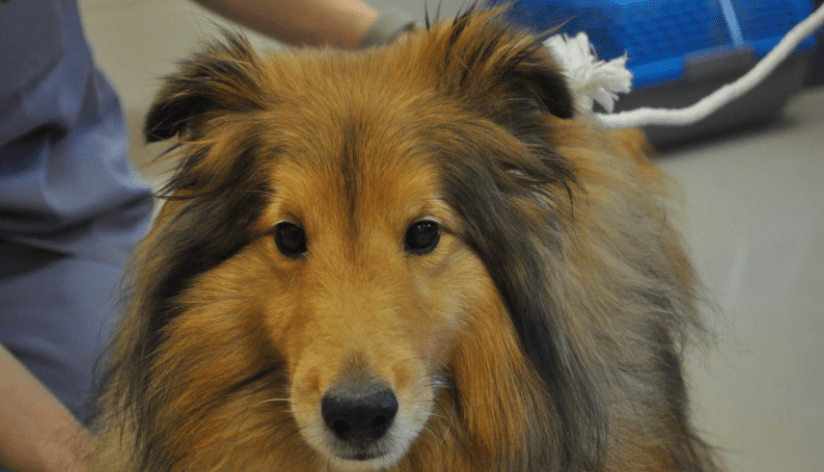
Study Investigators: Dr. Brenda Coomber and Dr. Paul Woods
Study Title: Collection of Samples from Dogs Diagnosed with Cancer and Not Scheduled to Undergo Surgery for Tumour Removal
Generously Supported by: PetDx
After having a series of seizures, Ridley was diagnosed with a brain tumour, more specifically a right frontal meningioma. This is the most common type of brain tumour in cats and dogs. While research has found that certain breeds like German Shepherds and Collies may be at a higher risk of developing meningiomas, we do not yet know what causes this type of cancer to occur.
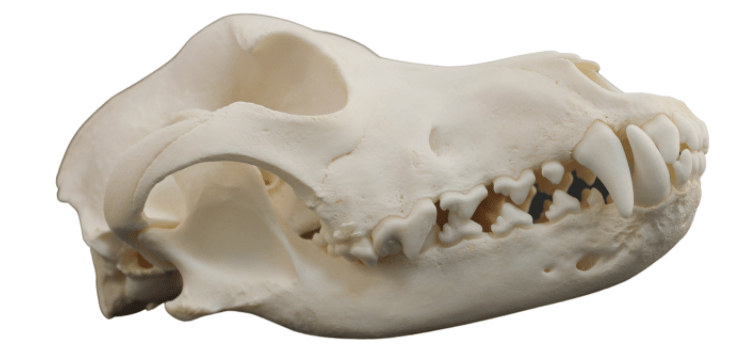
The meninges are a set of three membranes that provide a protective lining to the brain and spinal cord. Because of where these meninges are located, meningiomas actually grow inward from the skull towards the brain.
When meningiomas grow and begin to effect nearby brain tissue, nerves and/or vessels, clinical signs such as neck pain, visual deficits, abnormal behaviour and/or seizures (like with Ridley) can present.
MRI (Magnetic Resonance Imaging) uses magnetic fields and radio waves to create detailed images of organs and tissues. This non-invasive imaging technology is used in both human and veterinary medicine.
MRI is considered to be the gold standard to diagnose diseases of the brain and spinal cord in our pets.
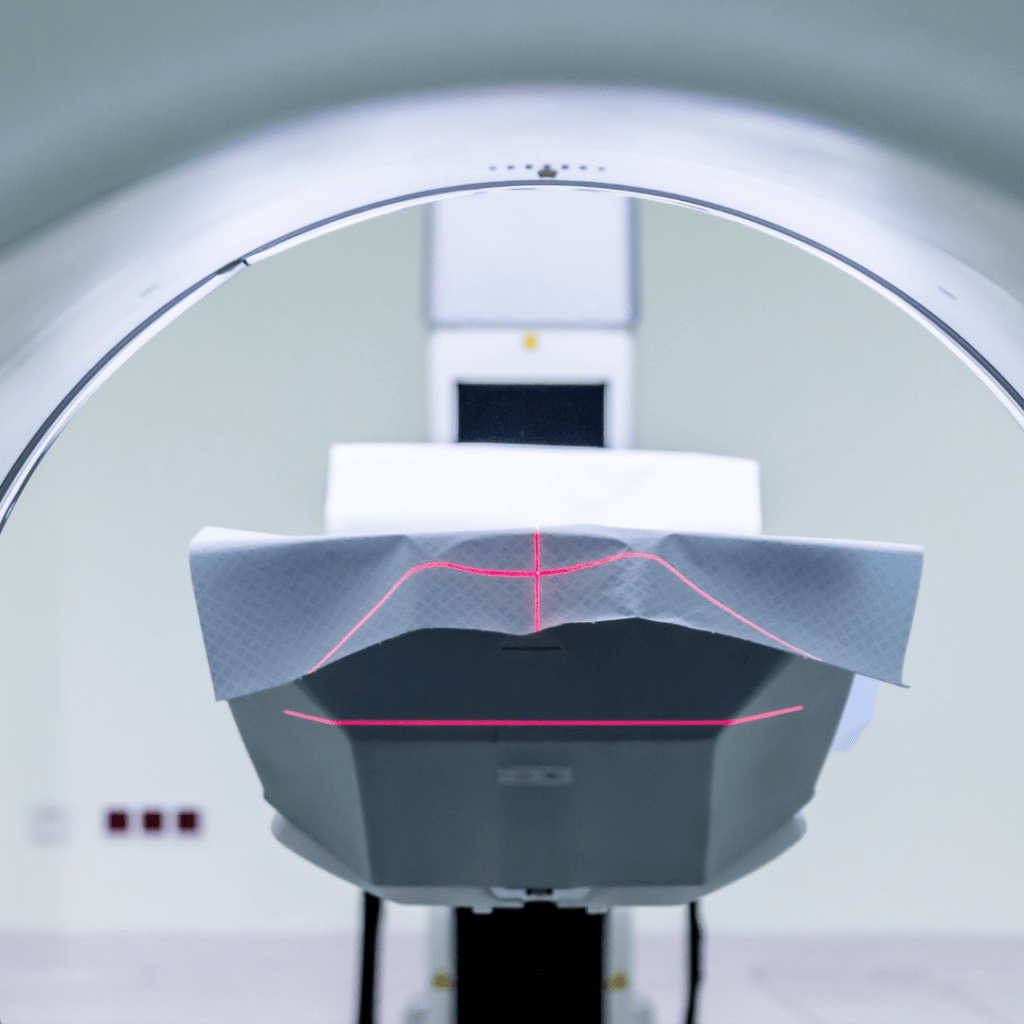
A MRI was performed to help the OVC Oncology clinicians confirm Ridley’s diagnosis of meningioma. In our cancer patients, additional diagnostic imaging (MRI, CT, ultrasound, x-rays) may be performed before and following treatment to confirm therapeutic success and monitor disease progression.
Prior to undergoing Radiation therapy with the OVC Oncology service, blood samples were collected from Ridley for participation in one of our clinical studies!
Ridley’s family enrolled him in this study because… “Ridley was 100% on board! It feels good to be able to be part of giving back through participating in this research. While there was a small financial incentive to participate (part of our testing was discounted), we would still have enrolled without this as we believe in the value of research. Most importantly, with the hope that we could make the cancer journey easier for pet parents and their beloved fur babies… we had to do it!“.
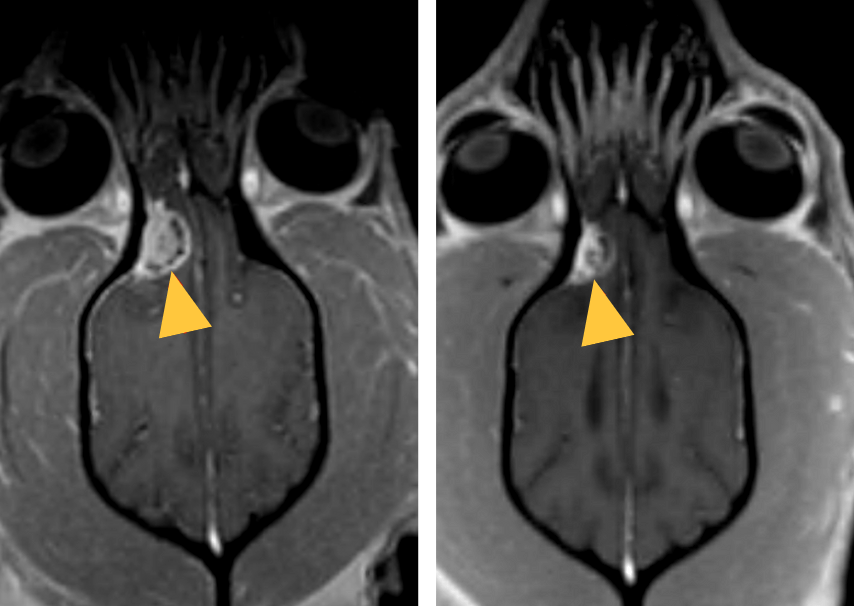
His tumour responded well to radiation therapy with the OVC Oncology Service decreasing 2/3 in size, from ~1cm to ~0.37cm.
These are MRI images taken before and after treatment, with his tumour indicated by the arrow.
After treatment and up to a year following, we have continued to collect blood samples for the PetDx observational study.
By participating in this study, Ridley will be helping other pets, as this team of researchers hope to develop a non-invasive test for early detection of cancer. This type of test may be especially helpful in diagnosing ‘difficult’ tumours, including meningiomas.
Currently, imaging is used most often for diagnosing meningiomas as biopsies and aspirates are associated with a high risk of complications and morbidity.
Ridley is doing well overall but unfortunately, almost 18 months following treatment, his tumour has progressed and he will be undergoing a second course of radiation therapy. His family has marked this event with reflection, snuggles and all of Ridley’s favourite treats.
“This extra time with Ridley, thanks to the OVC, is priceless and we will be forever grateful. We will never forget the compassionate, empathetic and loving staff at the OVC and thank you for championing research that furthers pet health and treatments.
It’s also not lost on us that Ridley’s cancer journey is not every dog’s journey and some are not as lucky so if we can change that with research, it is yet another reason to participate.
We will treasure every moment we have together, every slobbery kiss, every tail wag and every bark, all while keeping the OVC in our hearts for providing us with more of these precious moments and memories.”
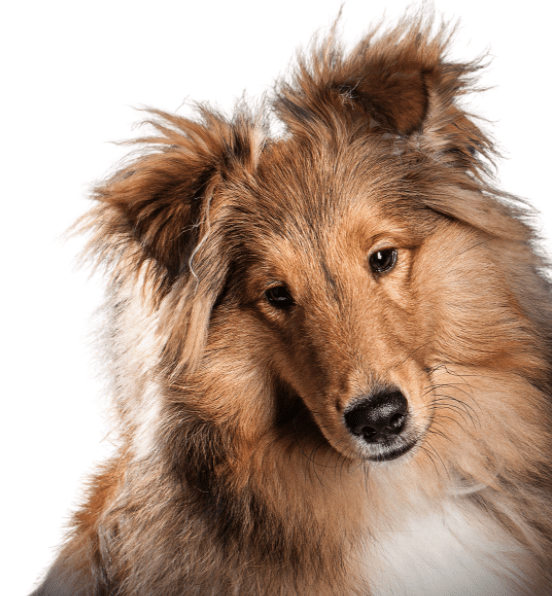
Ridley’s family also wanted to share a special message about their experience at OVC…
“From our first contact with OVC to our last, and everything in between, it has truly been a positive and wonderful experience. We can honestly say every single staff member from the doctors, veterinary assistants, medical staff, research staff and admin staff have always been professional, caring, and their love for Ridley was very touching to us – we always felt he was in excellent hands and was at his home away from home when at the OVC. Staff were fantastic in making us feel comfortable in leaving him for treatment and in answering all our questions and sometimes multiple times.
Facing a cancer diagnosis can be an extremely stressful situation but there was a level of comfort in dealing with such knowledgeable, professional and empathetic staff. We were provided with accurate information based on the latest research in the area of animal cancer care. What added a level of complexity to this whole process was that it happened in the middle of the pandemic yet we never once felt there was any compromise in Ridley’s care“.
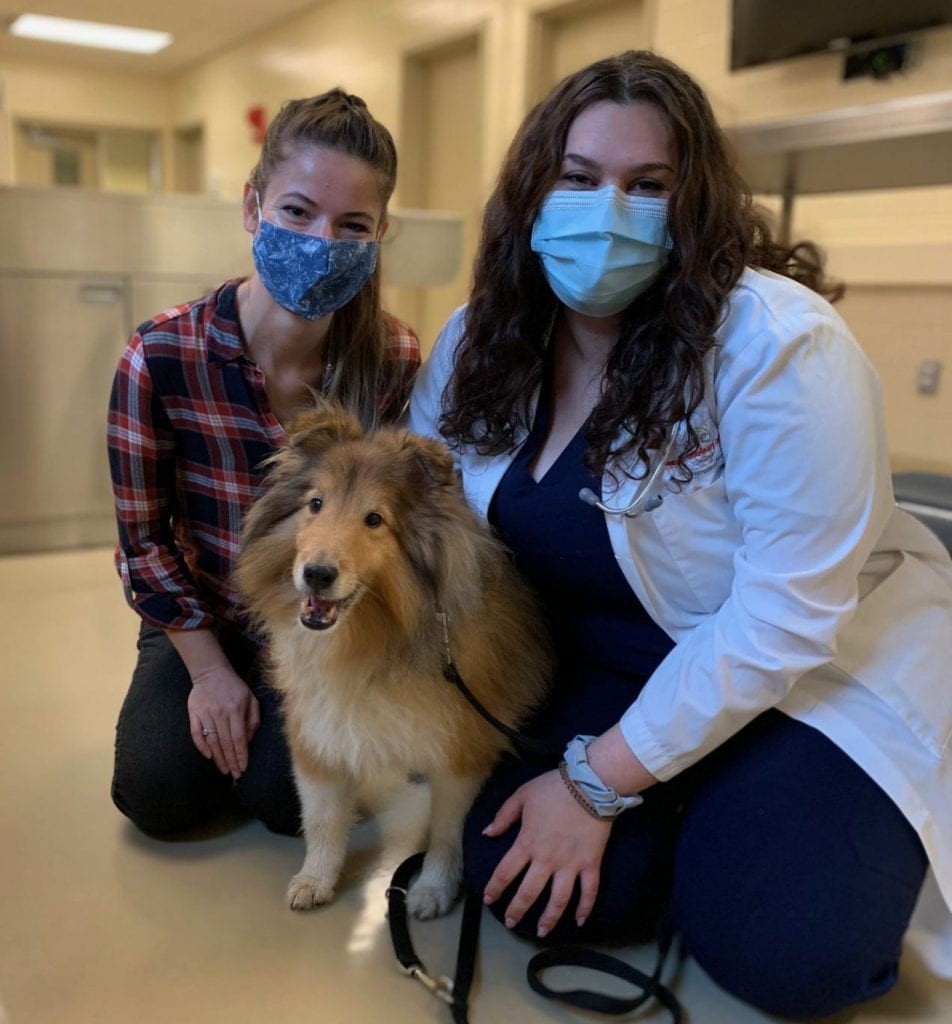
Ridley with Charly McKenna (Research Manager, OVC Clinical Trials) and Dr. Gabriella Allegrini (Intern, OVC Radiation Oncology)


